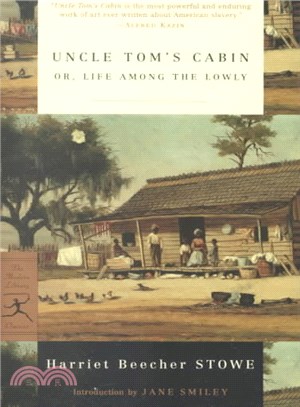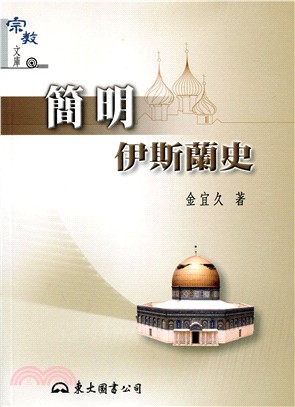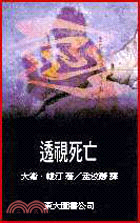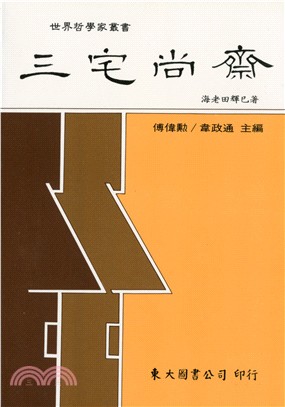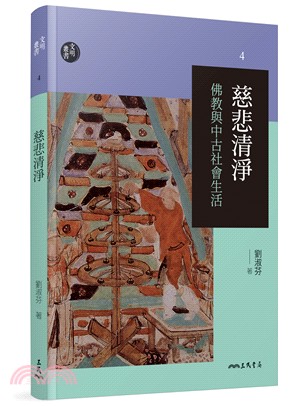相關商品
商品簡介
作者簡介
商品簡介
When Uncle Tom's Cabin was published in 1852, it became an international blockbuster, selling more than 300,000 copies in the United States alone in its first year. Progressive for her time, Harriet Beecher Stowe was one of the earliest writers to offer a shockingly realistic depiction of slavery. Her stirring indictment and portrait of human dignity in the most inhumane circumstances enlightened hundreds of thousands by revealing the human costs of slavery, which had until then been cloaked and justified by the racist misperceptions of the time. Langston Hughes called it "a moral battle cry," noting that "the love and warmth and humanity that went into its writing keep it alive a century later," and Tolstoy described it as "flowing from love of God and Man."
作者簡介
Harriet Beecher Stowe, a prolific writer best remembered today for Uncle Tom's Cabin, was born in Litchfield, Connecticut, on June 14, 1811, into a prominent New England family. Her father, Lyman Beecher, was a well-known Congregational minister, and her brother Henry Ward Beecher became a distinguished preacher, orator, and lecturer. Like all the Beechers she grew up with a strong sense of wanting to improve humanity. At the age of thirteen Harriet Beecher enrolled in the Hartford Female Seminary and subsequently taught there until 1832, when the family moved to Cincinnati. In Ohio she was an instructor at a school founded by her elder sister Catharine, and she soon began publishing short stories in the Western Monthly Magazine.
Four years later, in 1836, Harriet Beecher married Calvin Stowe, a respected biblical scholar and theologian by whom she had seven children. In order to supplement the family's meager income she continued writing. The Mayflower, her first collection of stories and sketches, appeared in 1843. During this period abolitionist conflicts rocked Cincinnati, and Mrs. Stowe witnessed firsthand the misery of slaves living just across the Ohio River in Kentucky. But not until the passage of the Fugitive Slave Act of 1850 was she inspired to write about their plight. After the family resettled in Brunswick, Maine, when Mr. Stowe was hired as a professor at Bowdoin College, she began working on a novel that would expose the evils of slavery.
First serialized in the National Era, an abolitionist paper, in forty weekly installments between June 5, 1851, and April 1, 1852, and published as a book on March 20, 1852, Uncle Tom's Cabin was an enormous success. Tolstoy deemed it a great work of literature 'flowing from love of God and man,' and within a year the book had sold more than 300,000 copies. When Uncle Tom's Cabin appeared in Great Britain Queen Victoria sent Mrs. Stowe a note of gratitude, and enthusiastic crowds greeted the author in London on her first trip abroad in 1853. In an attempt to silence the many critics at home who denounced the work as vicious propaganda, Mrs. Stowe brought out A Key to Uncle Tom's Cabin in 1853, which contained documentary evidence substantiating the graphic picture of slavery she had drawn. Dred (1856), a second antislavery novel, did not enjoy the acclaim of Uncle Tom's Cabin, yet the author had already stirred the conscience of the nation and the world, fueling sentiments that would ignite the Civil War. When Abraham Lincoln met her at the White House in 1862 he allegedly remarked: 'So you're the little woman who wrote the book that started this great war!'
In subsequent novels Stowe shifted her attention away from the issue of slavery. Beginning with The Minister's Wooing (1859), and continuing with The Pearl of Orr's Island (1862), Oldtown Folks (1869), and Poganuc People (1878), she presented a perceptive and realistic chronicle of colonial New England, focusing especially on the theological warfare that underscored Puritan life. In a second and less popular series of novels—My Wife and I (1871), Pink and White Tyranny (1871), and We and Our Neighbors (1875)—she depicted the mores of post-Civil War America. Mrs. Stowe did enjoy success, however, with the controversial Lady Byron Vindicated (1870), a bold defense of her friend Anne, Lady Byron, that scandalously revealed Lord Byron's moral delinquency. In addition she became a regular contributor to the Atlantic Monthly, which published many of the memorable short stories later collected in Oldtown Fireside Stories (1872) and Sam Lawson's Oldtown Fireside Stories (1881).
Harriet Beecher Stowe wrote little during the last years of her life. She died in Hartford, Connecticut, on July 1, 1896. Perhaps Mrs. Stowe's achievement was best summed up by abolitionist Frederick Douglass who said: 'Hers was the word for the hour.'
From the eBook edition.
Four years later, in 1836, Harriet Beecher married Calvin Stowe, a respected biblical scholar and theologian by whom she had seven children. In order to supplement the family's meager income she continued writing. The Mayflower, her first collection of stories and sketches, appeared in 1843. During this period abolitionist conflicts rocked Cincinnati, and Mrs. Stowe witnessed firsthand the misery of slaves living just across the Ohio River in Kentucky. But not until the passage of the Fugitive Slave Act of 1850 was she inspired to write about their plight. After the family resettled in Brunswick, Maine, when Mr. Stowe was hired as a professor at Bowdoin College, she began working on a novel that would expose the evils of slavery.
First serialized in the National Era, an abolitionist paper, in forty weekly installments between June 5, 1851, and April 1, 1852, and published as a book on March 20, 1852, Uncle Tom's Cabin was an enormous success. Tolstoy deemed it a great work of literature 'flowing from love of God and man,' and within a year the book had sold more than 300,000 copies. When Uncle Tom's Cabin appeared in Great Britain Queen Victoria sent Mrs. Stowe a note of gratitude, and enthusiastic crowds greeted the author in London on her first trip abroad in 1853. In an attempt to silence the many critics at home who denounced the work as vicious propaganda, Mrs. Stowe brought out A Key to Uncle Tom's Cabin in 1853, which contained documentary evidence substantiating the graphic picture of slavery she had drawn. Dred (1856), a second antislavery novel, did not enjoy the acclaim of Uncle Tom's Cabin, yet the author had already stirred the conscience of the nation and the world, fueling sentiments that would ignite the Civil War. When Abraham Lincoln met her at the White House in 1862 he allegedly remarked: 'So you're the little woman who wrote the book that started this great war!'
In subsequent novels Stowe shifted her attention away from the issue of slavery. Beginning with The Minister's Wooing (1859), and continuing with The Pearl of Orr's Island (1862), Oldtown Folks (1869), and Poganuc People (1878), she presented a perceptive and realistic chronicle of colonial New England, focusing especially on the theological warfare that underscored Puritan life. In a second and less popular series of novels—My Wife and I (1871), Pink and White Tyranny (1871), and We and Our Neighbors (1875)—she depicted the mores of post-Civil War America. Mrs. Stowe did enjoy success, however, with the controversial Lady Byron Vindicated (1870), a bold defense of her friend Anne, Lady Byron, that scandalously revealed Lord Byron's moral delinquency. In addition she became a regular contributor to the Atlantic Monthly, which published many of the memorable short stories later collected in Oldtown Fireside Stories (1872) and Sam Lawson's Oldtown Fireside Stories (1881).
Harriet Beecher Stowe wrote little during the last years of her life. She died in Hartford, Connecticut, on July 1, 1896. Perhaps Mrs. Stowe's achievement was best summed up by abolitionist Frederick Douglass who said: 'Hers was the word for the hour.'
From the eBook edition.
主題書展
更多
主題書展
更多書展本週66折
您曾經瀏覽過的商品
購物須知
外文書商品之書封,為出版社提供之樣本。實際出貨商品,以出版社所提供之現有版本為主。部份書籍,因出版社供應狀況特殊,匯率將依實際狀況做調整。
無庫存之商品,在您完成訂單程序之後,將以空運的方式為你下單調貨。為了縮短等待的時間,建議您將外文書與其他商品分開下單,以獲得最快的取貨速度,平均調貨時間為1~2個月。
為了保護您的權益,「三民網路書店」提供會員七日商品鑑賞期(收到商品為起始日)。
若要辦理退貨,請在商品鑑賞期內寄回,且商品必須是全新狀態與完整包裝(商品、附件、發票、隨貨贈品等)否則恕不接受退貨。




